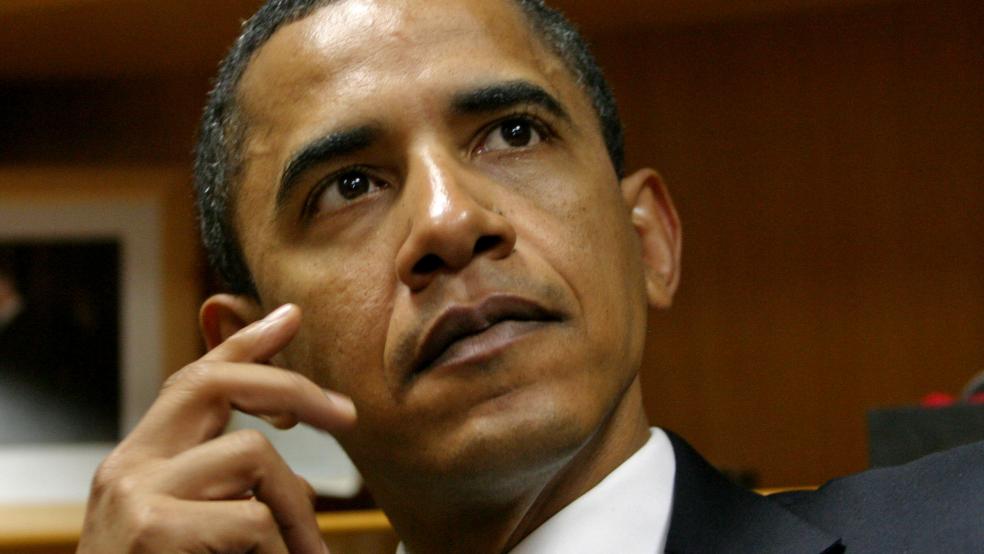President Obama might be as confused about the U.S. military’s success against ISIS as the American people are. He may have received bad intel from a key military command that might have embellished progress in the campaign against ISIS.
The investigation by the Pentagon inspector general was first disclosed by The New York Times and agency officials have since confirmed the probe’s existence. The inquiry was launched after an analyst with the Defense Intelligence Agency (DIA) came forward claiming officials at U.S. Central Command, which oversees the fight against the terror group, altered intelligence assessments before they reached leaders in Washington, including President Obama.
Related: ISIS Fight, Iran Deal Sink Obama’s Numbers
A disagreement within the intelligence community is nothing new, one only need look at the ongoing dust-up between the State Department and others over the degree of classification of messages from Hillary Clinton’s personal email server. But the results of the IG probe, either way, will provide fresh ammunition for both supporters and opponents of the anti-ISIS campaign.
Lawmakers on Capitol Hill have debated for roughly a year now whether the president’s airpower-heavy strategy has degraded the extremist group or hasn’t gone far enough or if U.S. grounds troops should be deployed to take back large swaths of territory inside Iraq and Syria.
Their arguments have grown more heated as other parts of the administration’s strategy, namely training and equipping moderate Syrian rebels to take on ISIS inside that country, have faltered.
Earlier this month, a defense official told the Associated Press that the intelligence community recently concluded that despite hitting Islamic State forces with over 5,500 airstrikes, the group’s strength remains between 20,000 and 30,000 fighters.
Related: More Than 5,000 Airstrikes and ISIS Is as Strong as Ever
Asked about the IG investigation on Wednesday, the White House responded with praise for the intelligence community. The “president's expectation is that his national security team will work diligently to get information to him and other members of the team that reflects an accurate assessment of what’s exactly happening on the ground,” Press Secretary Josh Earnest said during a briefing.
He later added, “The president does have confidence that that's what he’s receiving [because the] intelligence community has placed a priority in trying to get a variety of viewpoints when offering up their analysis” of the campaign.
Disagreement over a military effort’s progress is “not an unprecedented kind of thing” but if the DIA’s allegation is proven, it will undermine any future assessments by Central Command, said Jeffrey White, defense fellow at the Washington Institute for Near East Policy.
White said investigators could ultimately chalk up the claim to an “analytic disagreement” between DIA and Central Command or they might discover something more serious. “The impact will be stronger at a bureaucratic level depending on how high up you get,” according to White, who worked at the DIA for 34 years.
Related: 4-Star General Calls for Troops on the Ground to Break ISIS Stalemate
“A lieutenant colonel can be sacrificed,” but if it’s found a general officer distorted the numbers to the command’s advantage that’s a “much more serious problem,” he added.
Central Command spokesperson Sheryl Lawry said in a statement that they welcome the IG’s independent oversight. She said while the command “cannot comment on ongoing investigations, we can speak to the process and about the valued contributions of the Intelligence Community (IC).” Lawry noted that members of the community are typically able to comment on any draft assessments.
“It is ultimately up to the primary agency or organization whether or not they incorporate any recommended changes or additions. Further, the multi-source nature of our assessment process purposely guards against any single report or opinion unduly influencing leaders and decision-makers,” she said.
The administration maintains it has the right strategy for countering ISIS, even though Earnest conceded, “The president has described this as a campaign that is likely be marked by periods of progress and periods of setback.” He then rattled off a series of important gains, such as intelligence estimates that ISIS has lost 30 percent of the territory it once held.
Earnest also touted that nearly 6,400 airstrikes have been conducted against the group, including one that recently killed the network’s second-in-command, and the Pentagon’s effort to train Iraqi security forces to battle militants.
Though on that last score, he said, “There's no denying that -- that there's a lot more work to be done in this area.”





